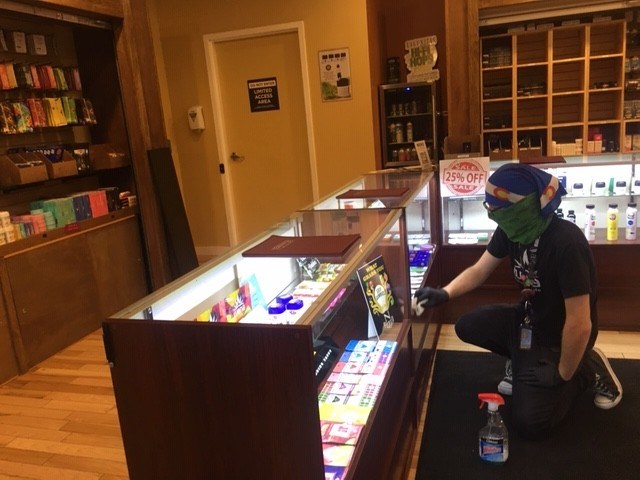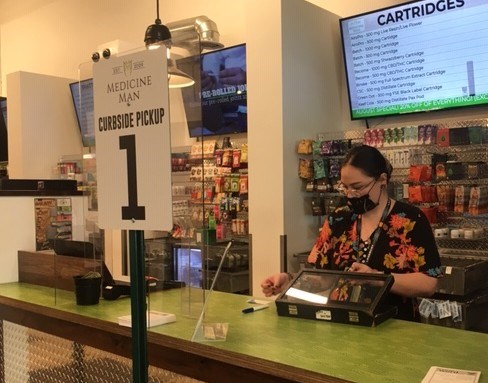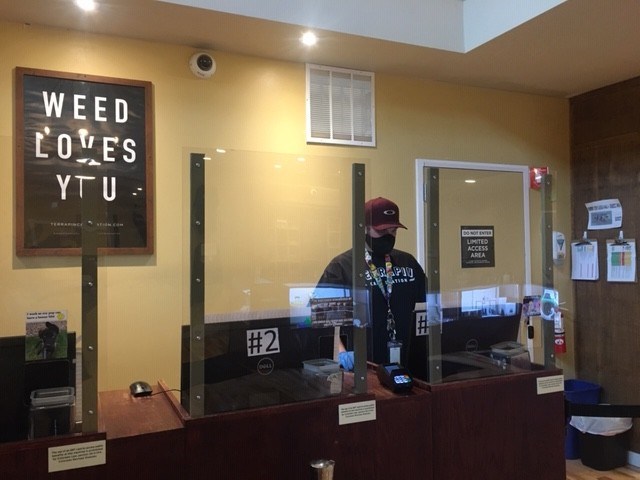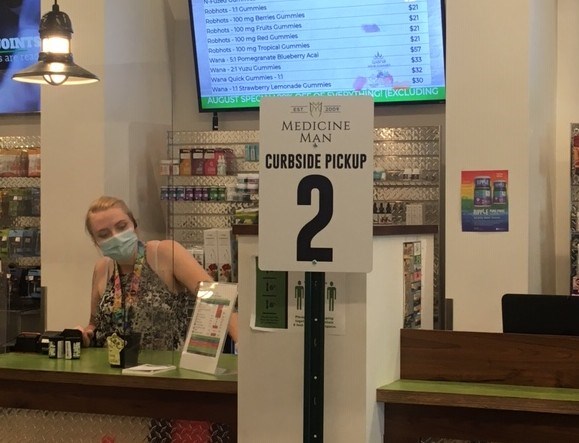Recreational marijuana sales in Colorado climbed to new highs in June, surpassing the $150 million mark. Statewide sales totaled more than $158 million, with Boulder County sales accounting for $10.7 million of that, according to Colorado Department of Revenue data released this month.
When medical and recreational sales are combined, the total climbs to more than $198 million for Colorado and more than $11.8 million for Boulder County, according to the data from the Department of Revenue’s Marijuana Enforcement Division.
And while state data doesn’t break down sales by city, dispensaries in Longmont are seeing plenty of sales and, in turn, the city is seeing hundreds of thousands of tax revenue from transactions at its four local licensed recreational dispensaries. Through the first six months of the year, marijuana sales have added up to $628,177 in tax revenue from local and state taxes.
That total is more than 76% of the $821,269 in revenue generated in all of 2019, the first full year of recreational sales in Longmont. City council in July 2018 picked four pot shops to receive the first recreational licenses in Longmont.
Among those four dispensaries are Terrapin Care Station and Medicine Man, both of which said sales have been growing since they opened their doors.
Medicine Man, which has four locations across the state, is seeing year-over-year monthly sales increase by about 30%, said CEO Sally Vander Veer. And the Longmont location, which opened in February 2019, “has really exceeded our expectations,” she said.
Vander Veer attributes the growth in local sales to Medicine Man’s focus on customer service, and product quality, availability and price. “We feel we’ve nailed it,” she said.
And then there’s the coronavirus pandemic, which seems to be fueling sales, too.
Vander Veer said she’s not sure if sales have been on the increase since the onset of the pandemic because people were home anxious or bored or just seeking to try something new, but the dispensary is seeing more first-time customers as well as larger purchases by existing customers.
Terrapin Care Station also is seeing strong growth, said Communications Director Peter Macus said. Sales are up about 40% at its six stores companywide, with Longmont sales up about 65% over last year.
 Taylor Wilson cleans display cases at Terrapin Care Station in Longmont on Friday. (Photo by Julie Baxter)
Taylor Wilson cleans display cases at Terrapin Care Station in Longmont on Friday. (Photo by Julie Baxter)And while it is hard to draw correlations between the rise in sales and the pandemic, Marcus, too, said anxiety and boredom could be driving the rise in pot purchases.
But even before the pandemic kept people home with more time on their hands, sales were growing at Terrapin Care Station, which was reassuring given the Longmont market was a bit of an unknown when the store opened in November 2018, he said.
Marcus credits the success to the company’s being “keyed in to the community,” which includes partnering with five local nonprofits — The Reentry Initiative, Centennial State Ballet, Out Boulder County, Homeless Outreach Providing Encouragement and the Longmont Community Justice Partnership. Terrapin Care is entering its second year of partnerships with those nonprofits and is planning to continue them next year, as well as expand to new opportunities, he said.
“We feel blessed the whole community has welcomed us,” Marcus said, adding that since Terrapin opened the Longmont location, the workforce at the store has doubled and now totals 17 employees.
And as sales have grown, customer habits have changed, he said, with Longmont customers who had traditionally chosen “flower” — the smokable version of marijuana — are beginning to purchase more concentrates, edibles and topical products.
No matter what form in which it is sold, pot sales in Longmont are subject to three taxes — a 3.53% city sales tax, a 3% special retail marijuana sales tax and a statewide 15% retail marijuana sales tax, according to Jim Golden, Longmont’s chief financial officer.
Each marijuana tax revenue stream allocated to various funds in the city budget.
 Dasha Nunez checks stock at Medicine Man in Longmont on Friday. (Photo by Julie Baxter)
Dasha Nunez checks stock at Medicine Man in Longmont on Friday. (Photo by Julie Baxter)Revenue from the special 3% tax is earmarked for specific purposes: Half of it for the city’s Affordable Housing Fund, and this year, the remainder of revenue will be allocated to early childhood education and human service agencies, according to Golden. As with the other taxes, it is pooled with other sources of revenue to fund projects.
In the case of the Affordable Housing Fund, pot money and other money is combined to provide loans for projects reviewed by the Affordable Housing Technical Review Group and the Housing and Human Services Advisory Board. Those boards then make recommendations to city council on which projects receive funding, Housing and Community Investment Division Manager Kathy Fedler said in an email.
Because all sources of money — including an annual $1 million allocation from the General Fund, developers making payments in lieu of their inclusionary housing requirements and loan repayments — go into the Affordable Housing Fund, there is no way to determine the funding source by project, she said.
Among the projects that received Affordable Housing Fund loans this year were senior housing apartments at Cinnamon Park; last year projects included a loan to help residents of Longmont Mobile Home Community to purchase the park as a co-op and rehabilitation efforts to preserve existing affordable housing units at various nonprofit- and city-owned properties.
The application period for the next allocations from the fund will open on Oct. 5, Fedler said.
 Terrapin Care Station employee Brandon Illig at the Longmont dispensary on Friday. (Photo by Julie Baxter)
Terrapin Care Station employee Brandon Illig at the Longmont dispensary on Friday. (Photo by Julie Baxter)


